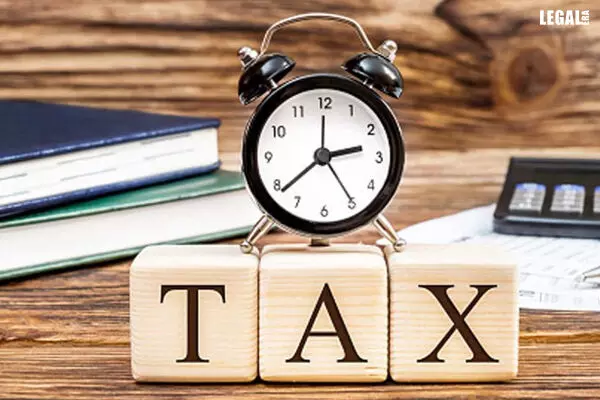- Home
- News
- Articles+
- Aerospace
- Artificial Intelligence
- Agriculture
- Alternate Dispute Resolution
- Arbitration & Mediation
- Banking and Finance
- Bankruptcy
- Book Review
- Bribery & Corruption
- Commercial Litigation
- Competition Law
- Conference Reports
- Consumer Products
- Contract
- Corporate Governance
- Corporate Law
- Covid-19
- Cryptocurrency
- Cybersecurity
- Data Protection
- Defence
- Digital Economy
- E-commerce
- Employment Law
- Energy and Natural Resources
- Entertainment and Sports Law
- Environmental Law
- Environmental, Social, and Governance
- Foreign Direct Investment
- Food and Beverage
- Gaming
- Health Care
- IBC Diaries
- In Focus
- Inclusion & Diversity
- Insurance Law
- Intellectual Property
- International Law
- IP & Tech Era
- Know the Law
- Labour Laws
- Law & Policy and Regulation
- Litigation
- Litigation Funding
- Manufacturing
- Mergers & Acquisitions
- NFTs
- Privacy
- Private Equity
- Project Finance
- Real Estate
- Risk and Compliance
- Student Corner
- Take On Board
- Tax
- Technology Media and Telecom
- Tributes
- Viewpoint
- Zoom In
- Law Firms
- In-House
- Rankings
- E-Magazine
- Legal Era TV
- Events
- Middle East
- Africa
- News
- Articles
- Aerospace
- Artificial Intelligence
- Agriculture
- Alternate Dispute Resolution
- Arbitration & Mediation
- Banking and Finance
- Bankruptcy
- Book Review
- Bribery & Corruption
- Commercial Litigation
- Competition Law
- Conference Reports
- Consumer Products
- Contract
- Corporate Governance
- Corporate Law
- Covid-19
- Cryptocurrency
- Cybersecurity
- Data Protection
- Defence
- Digital Economy
- E-commerce
- Employment Law
- Energy and Natural Resources
- Entertainment and Sports Law
- Environmental Law
- Environmental, Social, and Governance
- Foreign Direct Investment
- Food and Beverage
- Gaming
- Health Care
- IBC Diaries
- In Focus
- Inclusion & Diversity
- Insurance Law
- Intellectual Property
- International Law
- IP & Tech Era
- Know the Law
- Labour Laws
- Law & Policy and Regulation
- Litigation
- Litigation Funding
- Manufacturing
- Mergers & Acquisitions
- NFTs
- Privacy
- Private Equity
- Project Finance
- Real Estate
- Risk and Compliance
- Student Corner
- Take On Board
- Tax
- Technology Media and Telecom
- Tributes
- Viewpoint
- Zoom In
- Law Firms
- In-House
- Rankings
- E-Magazine
- Legal Era TV
- Events
- Middle East
- Africa
Gujarat High Court orders GST department to refund inadvertently paid IGST alongwith interest

Gujarat High Court orders GST department to refund inadvertently paid IGST alongwith interest
Refers to a Supreme Court ruling on the inadvertent payment of duty on exempted goods
The Gujarat High Court has directed the refund of the Integrated Goods and Service Tax (IGST) amount, along with applicable interest, to a petitioner who inadvertently paid IGST at a higher rate than the applicable concessional rate.
The petitioner, Tagros Chemicals India Pvt. Ltd. was registered under the Goods and Services Tax (GST) since its introduction. The case pertained to a purchase order received from Quality Biz Chem India Pvt. Ltd., Mumbai, for the supply of goods intended for export.
Relying on Notification No.41/2017 - Integrated Tax (Rate) dated 23 October 2017, the petitioner supplied the goods to the buyer at an IGST rate of 18 percent instead of the concessional rate of 0.1 percent. On realizing the error, the petitioner issued a credit note to the buyer for the excess amount of tax paid.
But despite mentioning the credit note in the GST returns, the petitioner could not adjust the turnover and GST liability. This was due to the absence of outward supplies in subsequent months.
On 3 September 2020, the petitioner filed a refund claim as per the provisions of the Integrated Goods and Service Tax Rules, 2017, seeking a refund of Rs. 23,09,100, paid in excess.
However, the respondent (GST department) issued a show-cause notice to the petitioner and rejected the refund claim without adequately addressing the petitioner’s submissions.
The court observed that the registered recipient was required to export the goods within 90 days from the date of the tax invoice. And the invoice was dated 30 June 2019, which meant the goods were exported by Quality Biz within the stipulated period.
Referring to the precedent set by the Supreme Court in the Bonanzo Engineering & Chemical Pvt. Ltd. vs Commissioner of Central Excise (2012(4) SCC 771) case, the bench upheld that under the Act, the inadvertent payment of duties on goods exempted from payment did not convert the goods into liable goods.
Thus, the court allowed the petitioner's plea and set aside the order passed by the respondent authorities. It directed the respondents to refund the amount of Rs.23,09,100, along with applicable interest, to the petitioner within a reasonable time.



